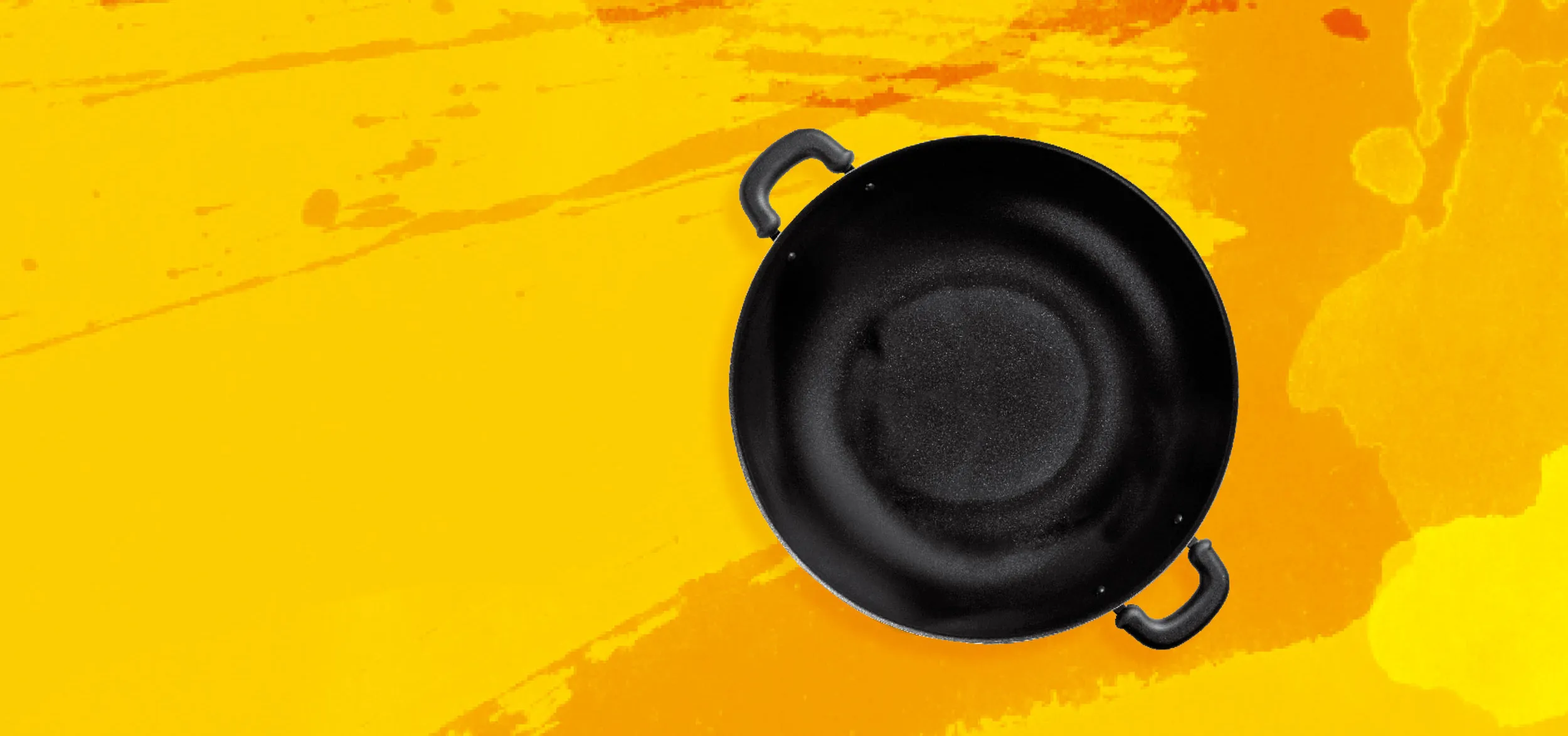Chinese slang for taking the blame for others
The world isn’t fair, not by a long shot, and sometimes you need a scapegoat. In Chinese, we have a scape-wok as in 背黑锅 (bēihēiguō, carry the black wok on one’s back), because 锅 (guō) sounds like 过 (guò, mistake or fault). Colloquially, people often leave out the “black” and just say 背锅 (bēiguō ). For example: 她没做错什么,却替董事会背了锅。(Tā méi zuò cuò shíme, què tì dǒngshìhuì bēi le guō. She did nothing wrong, but carried the wok on behalf of the board.)
Similarly, you have 接锅 (jiēguō), which literally means to “accept the wok,” as in, His predecessor screwed everything up, so he prepared to accept the wok before coming to power. (他的前任把事情搞得一团糟,所以他在上任之前就做好了接锅的准备。Tā de qiánrèn bǎ shìqing gǎo de yì tuán zāo, suǒyǐ tā zài shàngrèn zhīqián jiù zuò hǎo le jiēguō de zhǔnbèi.)
Victims of scapegoating are sympathetic figures, so they can earn the heroic title of 接锅侠 (jiēguōxiá, wok-accepting knight). Though unfairly in most cases, they are always the ones taking responsibility with chivalric aplomb. However, let’s remember that for someone to accept the wok, someone has to give it away; for that, we have the expression, 甩锅 (shuǎiguō), meaning “throw off the wok,” or “throw the wok to somebody.” If a sports team loses, the coach might put all that blame on the players, so you might say: “The football team lost the match, and the coach did nothing but throw the wok to his players. (足球队输了比赛,可教练却只会甩锅给队员。Zúqiúduì shū le bǐsài, kě jiāoliàn què zhīhuì shuǎiguō gěi duìyuán.)”
However, wok-throwing hardly ever works and you may have to take responsibility. For this, we have 分锅 (fēnguō, distribute the wok), which roughly means to distribute blame, as in, The project has failed. It’s time for the team to distribute the wok. (项目已经失败了,现在是分锅的时候了。Xiàngmù yǐjīng shībài le, xiànzài shì fēnguō de shíhou le.)
Sooner or later, the wok comes for us all. There’s no rhyme or reason to it, thus, sometimes, 天外飞锅 (tiān wài fēi guō), a wok just falls from heaven.
Passing the Wok is a story from our issue, “Wildest Fantasy.” To read the entire issue, become a subscriber and receive the full magazine.












